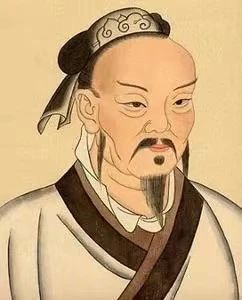
孟子见梁惠王[1]。王曰:“叟[2]不远千里而来,亦将有以利吾国乎?”
孟子对曰:“王何必曰利?亦[3]有仁义而已矣。王曰:‘何以利吾国?’大夫曰:‘何以利吾家?’士庶人曰:‘何以利吾身?’上下交征[4]利而国危矣。万乘[5]之国弑[6]其君者,必千乘之家;千乘之国弑其君者,必百乘之家。万取千焉,千取百焉,不为不多矣。苟[7]为后义而先利,不夺不餍[8]。未有仁而遗[9]其亲者也,未有义而后其君者也。王亦曰仁义而已矣,何必曰利?”
Mencius went to see king Hui of Liang. The king said, “Venerable sir, since you have not counted it far to come here, a distance of a thousand li, may I presume that you are provided with counsels to profit my kingdom?
Mencius replied, “Why must Your Majesty use that word ‘profit?’ What I am provided with, are counsels to benevolence and righteousness, and these are my only topics. If Your Majesty say, ‘What is to be done to profit my kingdom?’ the great officers will say, ‘What is to be done to profit our families?’ and the inferior officers and the common people will say, ‘What is to be done to profit our persons?’ Superiors and inferiors will try to snatch this profit the one from the other, and the kingdom will be endangered. In the kingdom of ten thousand chariots, the murderer of his sovereign shall be the chief of a family of a thousand chariots. In the kingdom of a thousand chariots, the murderer of his prince shall be the chief of a family of a hundred chariots. To have a thousand in ten thousand, and a hundred in a thousand, cannot be said not to be a large allotment, but if righteousness be put last, and profit be put first, they will not be satisfied without snatching all. There never has been a benevolent man who neglected his parents. There never has been a righteous man who made his sovereign an after consideration. Let Your Majesty also say, ‘Benevolence and righteousness, and let these be your only themes.’ Why must you use that word— ‘profit?’”
【注释】[1]梁惠王:就是魏惠王,即位后由安邑迁都大梁,所以又称梁惠王。[2]叟:对老年男人的尊称。[3]亦:这里是“只”的意思。[4]交征:互相争夺。[5]乘:古代四马驾一车为一乘。[6]弑:下杀上,卑杀尊。[7]苟:如果。[8]餍:满足。[9]遗:遗弃
【译文】孟子谒见梁惠王。梁惠王说:“老先生,您不远千里来到这里,一定是有对我的国家有利的高见吧?”
孟子回答说:“大王,您何必谈利呢?只讲仁义就行了。大王说:‘怎样能对我的国家有利?’大夫说:‘怎样能对我的封地有利?’士人和百姓说:‘怎样能对我自己有利?’如此上下互相争夺利益,国家就很危险了!在一个拥有一万辆兵车的国家里能够杀害国君的人,一定是拥有一千辆兵车的大夫;在一个拥有一千辆兵车的国家里能够杀害国君的人,一定是拥有一百辆兵车的大夫。这些大夫在一万辆兵车的国家中就拥有一千辆,在一千辆兵车的国家中就拥有一百辆,他们拥有的不可谓不多。可是,如果把义放在后而把利摆在前,他们不夺得国君的地位是永远不会满足的。反之,从来没有讲求仁爱的人而抛弃自己父母的,从来也没有讲求道义而怠慢自己国君的人。所以,大王只讲仁义就行了,何必说利呢?”
【解读】孟子所处的战国时代,较春秋时期而言,战乱更加频发,社会动荡加剧,人们竞相逐利,“子弑父、臣弑君”的现象屡屡发生。面对远道而来的孟子,梁惠王首先关注的就是会给自己带来怎样的好处,但孟子举起了不同于世俗的“义旗”,当头棒喝梁惠王,对唯利是图的后果进行了深刻的揭示。孟子认为,如果人们眼中只有利益,必定会致使上下互相争夺利益,那么,整个社会便会因此陷入人人为己的混乱状态。那怎样才能拯救世道人心?孟子响亮地喊出了“亦曰仁义而已矣”,这一口号不仅警醒了当时的社会,而且深刻塑造了后世中华民族的精神世界。当然,义利之辨是儒家所讨论的核心论题,也是当今社会需要我们认真面对的严肃问题。
在本章中孟子所反对的是“后义而先利”,是想让人将“义”放在首要标准。追求名利并不可耻,儒家肯定合乎道义的名利追求,可耻的是在利益面前丧失道德的底线。这也警示我们,切勿陷入一味趋利的泥沼,忘却了道义二字。